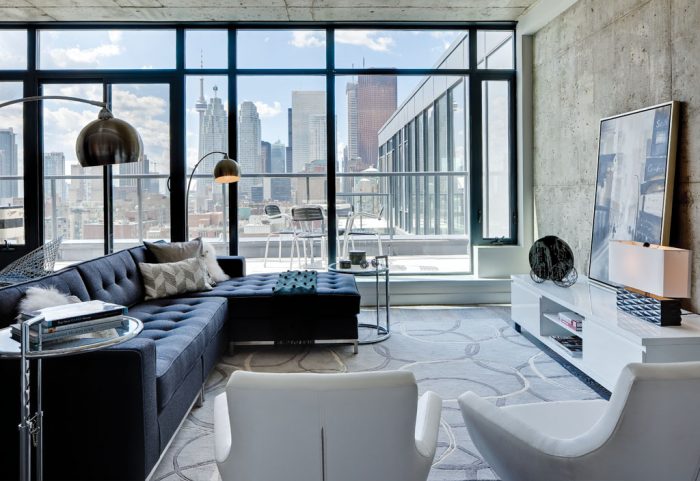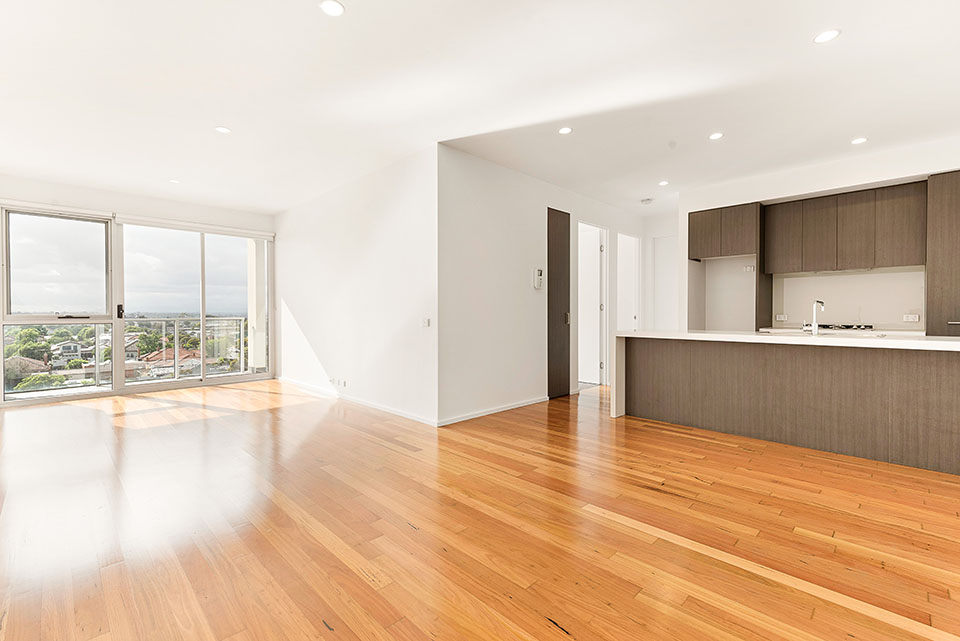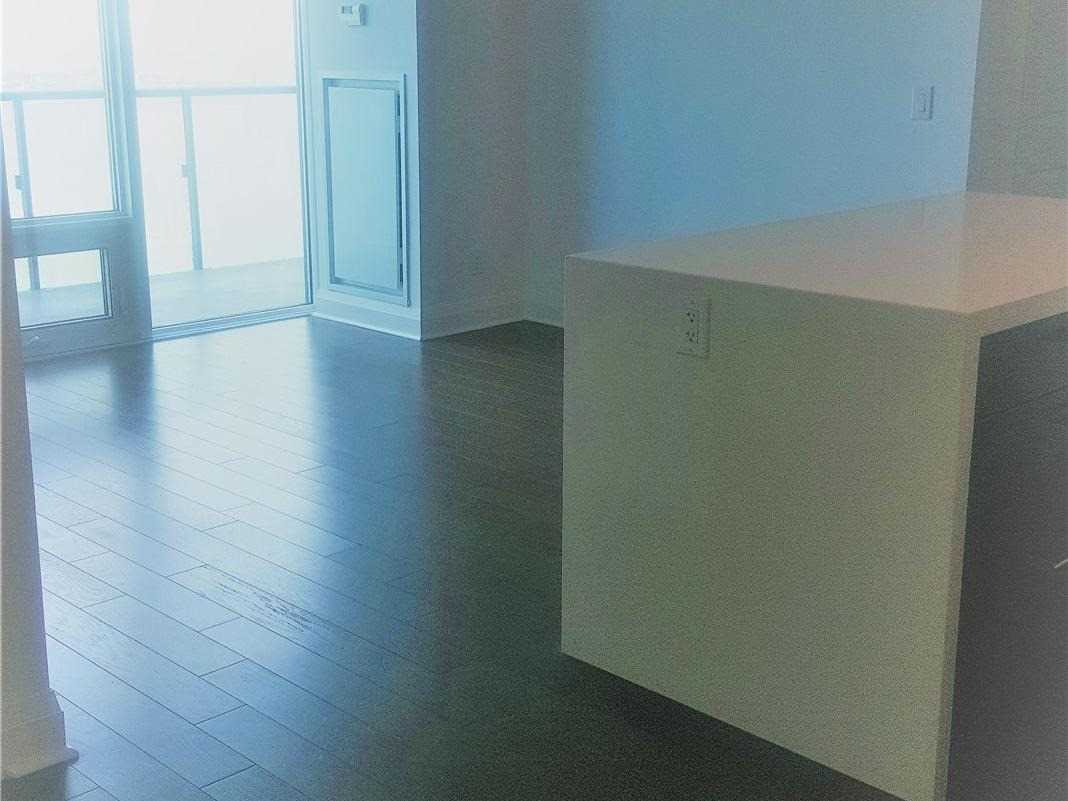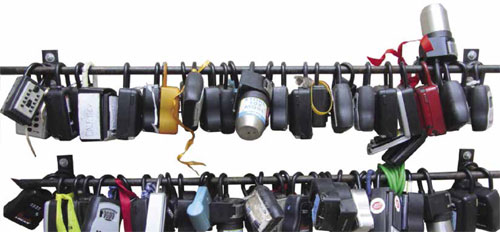Selling a condo in GTA.
If you want to sell a condo in GTA our first question would be if you must do so, as we have already pointed out in another blog we think the real estate in GTA will do very well over the long period of time, hence if you are able to financially, and want to be a landlord (many people buy a condo as their first property and then move into a freehold as their lifestyle changes) consider keeping your condo as long as it’s a good condo in a good building.
If we can convince you to keep the unit you can skip the rest of the blog, if not please keep on reading.
We don’t expect you the seller to know everything there is to know about the condo market, but if you are prepared you will know what to expect and demand from the person you hire to sell your condo.
When is a good time to sell – market seasonality.
The seasonality for condo selling is a bit different from houses because of the demographics, many condo buyers don’t have children therefore they usually they don’t have to worry about relocating before the school starts, but there are still some similarities and patterns.
In a typical year where we don’t have any significant events affecting the real estate market (covid, stress test) you would want to avoid selling during the summer when the buyers are on vacation, wait until the second week of September and don’t list after the first week of December with the holidays season around the corner.
January still has many people on vacation or holidaying in the warmth waters of the Caribbean, wait until the second week of February, at this time usually the inventory is low, and buyers are starting to look for properties. Spring market may still be strong, but you are likely to experience more inventory and competition from other sellers.
If the market is strong and you expect to sell shortly after the listing is life, avoid putting the property up on mls just prior or during long weekends.
Know the market and current trends.
Being familiar with the market conditions and the current trends will allow you to properly market the property, set the correct strategy for selling, and highlight the strengths of the property.
The real estate market may not be changing as quickly as the stock market, but it’s very fluid never the less, what was happening three weeks ago may not be the case today, and that’s why it is important to know, or hire someone who knows and stays on top of the ever changing trends.
Take for example the units on high or low floors, even the ground floor. Typically, higher floors are more desirable, but during covid lower floor units were selling better because of the ability of not using the elevators, and when selling what normally would be considered a weakness should be highlighted as the selling feature.
Good units sell better.
Hopefully prior to buying you did your research and bought a good unit (we explain the buying process in our guide to buying condos), as good units sell better than inferior units, simply put the homework you did when buying your condo will continue paying dividends for as long as you own the unit, and will make the sale easier and more profitable. With that said you are selling what you own, and you need to present it in the best possible light.
Ordering of the status certificate.
In another blog we have explained in details what is a status certificate, it is a buyers representative job to research the status certificate, as a condo owner you have received the documents every year from the condo management with the financials/budgets etc. and even if you are not familiar with the finances and condition of the building at the very least you need to know the following:
- Every responsible buyer will request a status certificate before buying your unit.
- The fee for ordering the status certificate from the management company is currently $100, and the management company must deliver the copy to the seller within 10 days. You have an option of express delivery for an additional fee.
- The status certificate is valid for 60 days since the day it was issued.
- Your representative should check if the status certificate package is complete.
Usually, it is the seller or their representative who orders the status certificate and distributes copies to the buyers, it wouldn’t make sense for every buyer to purchase their own copy since each one of them would need to pay the fee, it’s only reasonable for the seller to purchase it and distribute.
One of the more important question is regarding the timing of the ordering of the status certificate. If one is expecting to have an offer day, multiple offers or sell the condo very quickly without conditions, it makes sense to have the current copy of the status certificate on hand when the unit hits the market, this way anyone interested in the unit will have a chance to review it prior to making an offer.
If on the other hand the seller is expecting the possibility of the unit to sit on the market for a while due to market conditions or any other reason it may more sense to order the status certificate once the conditional offer is accepted.
Another issue with the status certificates is that very often the info included is outdated or missing, it happens very often since most agents representing the sellers don’t check what is included, or don’t know what should be included.
The issue here is that if incomplete or inaccurate info is in the status certificate the lawyer or real estate agent representing the buyers (assuming they know what to look for) will be requesting the correct info, and this will delay the waiving of the condition.
Showcasing the unit.
Even in a very strong sellers’ market the units don’t sell themselves, well at least not at the highest price possible, this is where the buyer’s psychology comes into play. We can compare it to the store display (brick and mortar or a website), a well showcased product that is well presented and easy to buy will sell better than the same product in an ugly store or where the shopping experience is cumbersome. Store display counts.
The same concept applies to selling your condo, the better it looks and the easier it is to access, the higher the chance of achieving the higher price and overall better deal for the seller.
Clean, scrub and declutter.
This is the first step, filthy apartment with too much stuff will give the buyers a wrong first impression, and many buyers can’t look past it. Even if you don’t want to stage the unit, cleaning, getting rid off offensive smells, and removing the clutter making the condo feel smaller than it really is, is probably the most important step.
Repairs and updates.
There are many inexpensive fixes that can go a long way in giving the buyer a good first impression. Obviously if you can do it yourself it will be the most economical, but even hiring a handyman shouldn’t be very expensive. Check the caulking around the bathtub or shower (we see this all the time), it will probably cost not more than $10 in materials to slap a fresh caulking and your bathroom already looks better, fix loose faucets, electrical outlets, some scratched on the floor can be fixed with various diy methods, drywall cracks (which we also see all the time and are not the best endorsement of the built quality) can easily be patched up.
What about paint?
If the condo has been enjoyed for a bit chances are there are stains that can’t be cleaned or scratches and dents that should be fixed, or your personal choices of the colour palette don’t align with the majority, in these cases a fresh coat of paint can be a good return on investment. If currently you have a fairly popular and neutral colours (such as nice grey or white as of the time of writing this blog) consider using the same colour of paint, very likely one coat will do and will make your job easier. If you love dark burgundy or lime green that you have personally enjoyed while living in the condo, updating it to a more universally accepted neutral colours will make a difference. If you are like many people who shop for condos or houses you have seen some of the house hunting shows and remember many buyers complaining about the colours, that’s true in real life, many buyers can’t look past it or simply want the place move in ready.
Updating appliances is also easy and you can buy them on special or second hand, currently users prefer stainless steel over white or black, an instant impact within a limited budget.
The cost of paint is insignificant if you can paint yourself or even if you hire a handyman (your agent should be able to arrange for it), hiring a good painting company can be more expensive.
What about other renos such as updating counter tops, replacing cabinets or floors? It depends, it will take time to do all that and if you are in a bit of a rush the time may not be on your side, it also depends on the condition of the unit as well as location or price. A condo in a very central location may be double the price as a comparable size unit is a less desirable location, yet the costs of updating may be very similar. A higher end DT condo that will likely be sold to end user will be a better candidate for updates that a unit that may likely attract and investor.
To stage or not to stage.
Staging can be done by hiring a professional stager or diy, and the answer whether to stage or not is a definitive yes.
Do not leave the unit empty, we see it all the time and it’s a mistake. Condos need staging as the buyers very often can’t visualize the space without furniture, this is especially applicate to small spaces, spaces with bad layout, corner units with glass on both sides or awkward shapes such as round walls or trapezoid shaped rooms. Empty rooms are not inviting and do not make a good first impression. If you have empty unit, please stage it, it will look better in the photos and when buyers see it in person.
Quite often you can achieve decent results if you already own current and not dated furniture, with some sweat equity and bringing fresh flowers, a vase with bright coloured fruits, hanging black and white photography or few other accents you can make the space look quite decent at a very low cost. This approach is often employed by sellers who live in the unit.
If hiring a professional stager, it is best to empty the units (or some rooms if that’s your agreement) and let them do the magic, the costs to stage will likely be very similar regardless if you are selling a $1M unit DT or a $500K unit on the outskirts of GTA, and currently you can expect to pay in the range of $2-3K, some stagers are more expensive, generally they have a minimum fee which is around $2K as of the time of writing this blog.
We have seen many expensive units in person that were not staged, and in our opinion it is a mistake, properly stages units, be it diy or by a professional sell better, especially if the units in question are higher end.
Virtual staging.
This is a pretty new concept where the photos are virtually staged, but the actual unit is not. The virtual staging has become quite popular during covid since many sellers had to deal with the constraints of working with the restrictions, but does it work? Well, you can usually tell if the photos are digitally altered with the furniture photoshopped in, they just look a bit off, it probably looks better than photos of empty or messy units, but when viewed in person the unit will still be less appealing than one that is properly staged or decorated. The bottom line is virtual staging doesn’t replicate what properly staged unit can do.
Photography, virtual tours, 3D capture.
Online presentation is a major step to getting the buyers in the door, we can’t overemphasize the importance of it, and any self-respecting agent should include it in their services. Insist on professional and good quality photography that will showcase your unit in the best light possible, with properly exposed colourful and bright photos, select few best as there is no need to show 40 photos since the buyers are most impacted by first 10 or so, make sure the pictures are not crooked, overly stretched but simply show the unit in the best light possible. Virtual tours are very common these days and a supplement to the images, but even better than virtual tours is 3D imagining, there are number of products on the market, matteport is probably most common and widely used, and many buyers find it very convenient to be able to walk through the property by clicking the mouse.
The following photo is an example of actual listings for condos worth over $1M, unbelivable.
My condo has a tenant.
You own and investment property and are now ready to sell, and your property has a tenant.
The simple fact is tenanted condos in GTA don’t sell as well properties that are vacant, or owner occupied and there are multiple reasons for it.
- It is more difficult to stage and photograph condos which are tenanted, you have people who live there, and you can’t just move their furniture to the storage and get staging pieces in
- Units which are not staged are more difficult to photograph,
- Some tenants may not be willing to keep the unit clean and presentable during the selling process,
- They can refuse the entry for the photographer,
- They can make it difficult to show the unit, restrict the times the unit can be shown, and during difficult times such as during pandemic they can refuse the access all together and there really isn’t much you can do. Majority of the tenants are very nice and accommodating, but as buyer agents we have had cases where we showed up at the door with the appointment schedule and confirmed, and we were refused the entry.
- Buyers are afraid they may not get vacant possession on closing day and are concerned about the pro-tenants laws in Ontario.
Strictly from the perspective of the seller it would be much better if you can have the unit vacant even if it means keeping it empty for couple of months until the title is transferred, in some cases it is easy to do as the tenants are moving regardless, other times you may want to discuss with your tenants what it would take to vacate the property, and do what possible as long as it is done legally.
Many buyers will insist on vacant possession on closing, and if this clause is in the contract and your tenant refuses to leave it will not only be troublesome for you and the buyer, it will also be quite expensive for you as the seller since you will be covering any additional costs the buyer may occur (accommodation, rent, financing issues and so on) and possibly face legal action since you have not delivered on the promises of the agreement of purchase and sale.
Empty property is easy to stage, showcase, photograph, allows for easy access to the buyers.
Tenanted property does not.
If you are selling the property with tenants and the tenants will stay you are likely selling to investors who are willing to assume the tenants, if that is the case show the sellers a proof of timely payments for the rent and do anything possible to show the buyers they are assuming a good renter.
Keeping the condo pristine during the showing period.
This is a big challenge for every seller who lives in a condo, especially if it is expected for the condo to be on the market for an extended period of time.
If at all possible, find the alternative accommodation for you and your pets if you have any, the easier it is to show the unit the better it will sell. Some buyers want to see it immediately and if you work from home this will be difficult.
We love pets but if possible please find them a suitable accommodation for that time. We have had a case recently where we went to see the condo and there was a small dog. There are buyers who are afraid or allergic to pets, and some pets are afraid of strangers. This little barking machine was barking the whole time we were there, no break, it was probably terrified of us and we couldn’t even hear each other.
If you can’t find accommodation for yourself and your family you must keep the place pristine, you should allow showings on very short notice, avoid cooking foods with strong aromas as it will linger around and will make a bad first impression.
Other listings in the building.
We have already touched on the seasonality of the real estate, now let’s discuss the micro market of the particular area or the building.
The strength of the real estate is simply a matter of supply and demand, the less units for sale and the more the demand the stronger the prices and vice versa. We can look at the market in general, the segment of the market we are in, the immediate area and even the building.
The more units in the building are for sale the more competition we have, and the buyers have a choice. It’s not always possible to avoid the competition especially since most people sell when they want to sell they don’t want to wait, but there could be scenarios where there are one or more similar units in the building already listed, possibly they have offer days, in these cases it very important to monitor the inventory in the building and act accordingly perhaps by moving the listing few days back.
Pricing and listing strategy.
The listing strategy will depend on multiple factors such as, but not limited to the quality of the unit, market conditions, motivation to sell, and so on.
One glove does not fill all, the same strategy will not be applied to an entry level unit as it would be to a high-end condo only few can afford.
The main factor is market condition, in a weak (buyers’ market) setting up for a multiple bids with offer day most often doesn’t work, this strategy is much more useful in the strong sellers’ market.
In the strong market when setting up for multiple bids you can decide to accept or not to accept pre-emptive offers (otherwise known as bully offers).
Another strategy is to list just below market value without offer day, by doing this and if the strategy works the seller is after a quick sale at a good price, and quite often in the strong market the seller will receive more than one offer within the first couple of days on the market and sell above the listing price.
Pricing well above market value rarely works, it is often based on the emotions and not reality, these properties tend to linger on the market, became stale listings, are relisted with lower and higher prices.
Pricing a bit above the market value or a little higher than what you are willing to accept is another sound approach, buyers like to negotiate if they can, and it gives you a bit of wiggle room.
In the balanced and buyers markets the most likely scenario is to set up the listing price around the current market value, and it the unfortunate circumstances dictate that you are very motivated seller and need to sell quickly, listing just below the market value may be a warranted approach.
The timing of the listing is quite important as well especially if you are planning on selling into a strong market. In a weaker market where the property is expected to be unsold for at least couple of weeks the day the property is listed doesn’t play a major role, however in the strong market and especially if you are expecting multiple offers on the offer day, it is advisable to have the listing life on Thursday or Friday just before the weekend.
As we have already mentioned before avoid long weekends, having a fresh listing just before the weekend should garner a strong interest and a lot of showings on the weekend and into Monday or Tuesday. Typically, you would want the offer day to be set no more than a week from the time the listing goes life as the buyers who saw it early may lose their interest, 5-7 days is perfect. Watch to see when similar units in the building have offer days set up for and don’t have them on the same day if at all possible.
Do not set up offer days for the weekend and have the review of the offers during the week when people are done working, typically after 5PM.
While the above strategies are most common one doesn’t have to adhere to one of them and improvisation of hybrid approach can be employed especially in transitional or difficult to categorize markets which are quickly changing.
We can take on another strategy where we will not accept the offers for let’s say 3 days to test the market, or to request long irrevocable, if we see that the property has a lot of interest it would it would probably mean it would be a good idea to hold off any bully offers until more people have the chance to see the unit, if the interest and number of showings is very limited we haven’t set up ourselves for a possible failure of an offer night with no offers.
For condos pricing based on the square footage is a common approach but areas and buildings differ from one another and multiple factors will play into estimating the market value of the unit even in the same building (high or low floor, exposure, view, functional layout, size – typically the bigger the unit the lower the price per square foot, parking, locker and so on).
Internet exposure.
The agent you hire will list the condo on mls and realtor.ca, from there the listings will automatically be pulled to other popular sites such as housesigma, condos.ca and others. Listing on mls is by far the most crucial for internet exposure of your condo, almost all the activity related to the listing will be due to the exposure on mls. Showing the listings on other sites such as facebook, Instagram and son on can be done as complimentary to mls listing, it may help the exposure a bit but mls is where the magic happens.
Exclusive listings.
Exclusive listing is when where the agent you hire does not post your condo on mls and it doesn’t have the online exposure through sites such as realtor.ca.
There are two main types of exclusive listings, one, a temporary exclusive listing where the agent will market the property among their pierce without listing on mls prior to actual mls listing, in most scenarios the property is getting ready to be listed (reno, update etc). The goal is to gather attention even prior to going on mls.
The second is where the seller wants a privacy or doesn’t want excessive number of showings in their property and the condo will not end up on mls, it will be strictly dependent on the marketing abilities of the listing agent. More common these types of listings are for high end properties but do happen for regular houses or condos as well.
In a vast majority of cases listing exclusively doesn’t produce the same exposure as the listing on mls, will not generate the same level of interest from the buyers, and likely result in lower selling price.
Taxes.
If the unit you are selling is your principal residence, there will be no taxes to pay. If you are selling rental or investment property, there will be a capital gains tax to pay.
Hiring the right realtor for the condo sale.
The person you hire to sell your condo should be experienced with condo transactions, must stay on top of the market trends, and be knowledgeable about the process of buying and selling condos. When interviewing the agents ask what they know about status certificates, do they understand this document and know what should be included, do the know what is the reserve fund study, what they know about the area, the building and the current market trends and conditions.
The last thing you want is a buyer agent contacting your agent with questions and the answer is “I don’t know”. Obviously, there is info the agent may not have the knowledge of, in this case they better know how to look for it and find it, but the realtor you have hired should be well versed in the process and have good knowledge of your building and unit.
Your representative should get familiar with the condo rules related to the selling of the property, this includes the hours for showings, where to park, how to find a lockbox and to make it easy to find the lockbox, pay attention to any permanent or temporary restrictions.
If the unit is not occupied part of the realtor’s job is to check that everything is fine on daily basis, things happen and sometimes buying agents forget to close the windows or doors, leave the floor filthy, move the chairs and so on, as part of our services we visit the condo once a day (if there were showings) to ensure everything is the way it should be.
Lockboxes.
Each building has their own rules about placing the lockboxes with keys to access your unit, sometimes the boxes are places in the stairwell on the same floor, other time you get it from the concierge. These the easy once.
Many buildings however have central places where all lockboxes are located, they may be in the parking lot, outside, somewhere on the main floor, and sometimes there are hundreds of them in one place. Make sure your agent properly describes how to access the lockbox, tells the exact placement and puts some distinctive feature on the lockbox such as green tape, business card and so on. As mentioned above you want easy access to your unit, buyers are often given no more than 30 minutes to see the unit, you don’t want them to waste time trying to figure out where is the lockbox and which one is it.
Psychology.
Getting the best possible deal for you (and it could mean different things for different people, most often it is the best price, but sometimes other factors come into play such as quick sale etc), is closely related to the psychology of the buyers, and all the work that was done prior and during the selling process is to appeal to as many buyers as possible.
People generally like nice, clean new and shiny, condo buyers these days like to move in and do as little as possible, and people want what others want.
That is why it is important to show the unit in the best possible light, and to ensure the listing is not stale.
Costs to sell.
Selling a condo is not inexpensive and you should be aware of them before listing the condo, the following are the main costs you should be aware of:
- Realtor commissions, typically 5% of the selling price (contact us for discounted rates and savings),
- Legal fees, around $2,000,
- Status certificate, $100 for regular 10 day delivery, more expensive for express delivery,
- Repairs, depends on the magnitude of repairs needed,
- Staging, typically between $2,000 to $3,000, may be substantially more for high end large units,
- Taxes, for properties that are not a principal residence (already discussed above).
- Penalties to break the mortgage, this will depend on the lender and the type of mortgage, typically variable rate mortgages have a penalty equaling to three months of interest, fixed mortgages may have very significant penalties, contact your lender for details if the situation applies to you before listing the condo.
- Elevator booking fee, moving, storage, kennel.
The closing day, or just around.
Obviously, you have to move out and take all of your possessions, the place will need to be clean and swept, if any big hole from hanging a tv and such these will need to be patched up, appliances in working condition. Pretty much what the buyers saw when they saw the condo but no furniture.
Mail forward, yes if you would like to receive your mail sign up for the mail forwarding service with Canada Post.
Have the lawyer aligned ahead of time so they can get everything they need from you (if you like contact as for recommendations).
Do not cancel your condo insurance until the deal is closed, contact your insurance company ahead of time to find out the exact procedures.
Contact any utility companies prior to closing and inform them of the sale.
The closing usually happens around 6PM, be out of the property prior to that.
Book the elevator way ahead of time.
Stress and inconvenience.
Yes, it will be stressful and inconvenient no matter what, even in the strong sellers’ market there will be a level of anxiety and uncertainty that will raise the stress to another level, and inconvenience related to showing and presenting the unit is never fun, yet it needs to be done to produce the best results.
With that in mind a good preparation and hiring the right people to do the job for you will alleviate some of the anxieties and inconveniences.
If you have any questions or comments, please drop us a line.











Post a comment